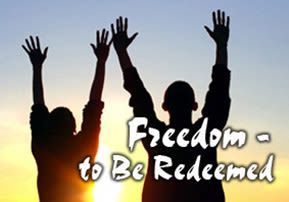
Freedom – To Be Redeemed
The month of Nissan is the time when the Children of Israel were freed from their slavery in Egypt, and according to our Sages it is the time when the Final...

The month of Nissan is the time when the Children of Israel were freed from their slavery in Egypt, and according to our Sages it is the time when the Final Redemption will occur. We commemorate this passage from slavery to freedom every year on Pesach (Passover), which is also called Zman Cherutainu (The Time of Our Freedom).
Most of us living in Western countries would consider ourselves to be free people. Yet most of us would agree that the Final Redemption has not yet come. If anything, events such as September 11 have shown just how vulnerable the “Free World” is to forces of evil.
So how do we rouse ourselves to celebrate “The Time of Our Freedom” when it seems that the “Pharaohs” of the world still have the upper hand? How do we fully enter into the spirit of Pesach and find meaning in the telling of the story of our nation’s Exodus from Egypt?
To answer these questions, we have to ask four more: 1) What is freedom? 2) What does the concept of “The Time of Our Freedom” mean to us today? 3) What is the difference between being “free” and being “redeemed”? and 4) What can we do to help bring about the Final Redemption?
Freedom’s Theory of Relativity
Ask one hundred people to define the word “freedom,” and you will probably get one hundred answers. And probably not a single one of them will match the answer given by Moses when he confronted Pharaoh.
We all know the beginning of the phrase, which has become a battle cry for oppressed people throughout the ages: “Let my people go.”
Moshe (Moses) tells Pharaoh to stop oppressing the Jews. Stop killing our children. Stop crushing us physically and emotionally with backbreaking, meaningless work. Let my people leave your tyranny and immorality and hypocrisy. Let my people go.
But Moshe doesn’t stop there. It’s not enough to recognize that a society is corrupt and cruel and express a desire to leave it. The desire to be “free from” some distressful situation is only half the story. You also need to have a clear idea of where you want to go after you leave the oppression behind. You can only be free from something negative if you have something positive that you want to be “free to do” instead. So what is it, according to Moshe, that the Jewish people want to do?
“Let my people go,” Moshe tells Pharaoh, “so that we may serve our God.”
The shock of this statement comes across more fully in the Hebrew. When the Torah describes the enslavement of the Children of Israel by the Egyptians in Shemot I:13-14, it says:
And the Egyptians made the Children of Israel serve (ya’avdu) with rigor. And they made their lives bitter with hard service (b’avodah), in mortar and brick, and in all manner of service (avodah) in the field; in all their service (avodatam) they made them serve (avdu) with rigor.
When God tells Moshe to go before Pharaoh and demand the Jews freedom, He tells Moses to say:
Let my people go, that they may serve me (ya’avduni) – (Exodus, 7:26).
Because the language is the same in both instances, it sounds a bit like the Israelites are being asked to jump from the frying pan into the fire. They have only two choices. They can serve Pharaoh or they can serve God. Not serving anyone is apparently not an option.
And that, in a nutshell, is the message of the Exodus story. God does not take the Jews out of Egypt so they can live carefree lives without any responsibilities to their families and society. And God does not liberate them so they can create their own version of a corrupt society where they will be the oppressors instead of the oppressed. God takes the Jews out of Egypt so that they will serve Him – so that they will create a new kind of society based upon the ideals and the commandments of the Torah.
But even though service under the Egyptians made the lives of the Jews “bitter” and God promises that His ways are darchei noam – ways of pleasantness (Mishlei 3:17), we still have to ask what kind of freedom is this?
There are 613 mitzvot in the Torah and they regulate every aspect of human life – our business practices, the food we may eat, how we speak about others, the need to take care of the sick and needy, the obligation to observe Shabbat and the holidays, etc. Doing all these mitzvot properly is no easy task. It requires an enormous amount of knowledge and a constant awareness of one’s actions – in other words, it requires serving God with diligence. How can this be freedom if we have to work so hard?
Freedom is Relative
According to an article printed in Ascent Quarterly by Yaakov Mendel Lefcoe (Spring 1996), a way to understand this concept of freedom is to understand that freedom is a relative concept.
Just as freedom means different things to different people, freedom means different things to different elements of our world. For instance a plant is in a state of freedom when it has everything it needs to grow and develop its leaves, flowers or fruits: i.e. when it has soil, sunlight, water, etc. A plant doesn’t feel constricted because it is stuck in one spot in the ground and can’t travel and see the world. An animal, however, would feel trapped in such a situation. Because an animal needs to move about freely, no matter how comfortable the cage may be, a caged animal is never free.
Human beings also need freedom of movement, but they need movement on both the physical and spiritual planes. Human beings have been blessed with intelligence and part of our conception of freedom is the ability to use that intelligence to produce something of our own that has value. When our ability to create and express ourselves is taken away from us, we feel enslaved – no matter how comfortable the working conditions may be or how high the pay.
Yet there is even one more level of freedom, which was granted to the Jews on that first Pesach – the freedom to be connected to God. When God chose us to be His People, we became bound to Him for all time. Therefore, we are most in tune with our essence, we express our inner selves most fully, when we are doing things that strengthen this connection – i.e. performing mitzvot and learning Torah.
Many Jews argue that observing the mitzvot limits their freedom to express themselves. Keeping kosher means you can’t eat out in most restaurants and cook many gourmet dishes. Keeping Shabbat means you can’t paint a picture, work on your novel or putter around in the garden on Saturdays. Sending your children to a private Jewish day school may mean you have to forgo the vacation to an exotic location or buying a new car every two years.
If Jews were meant to express themselves only in the physical plane, these limitations would indeed constitute a form of slavery. But because each mitzvah we perform allows us to develop and refine a facet of our souls, which helps bring us closer to God, living in accordance with the Torah is actually the greatest freedom a Jew can have.
Although the connection between mitzvah observance and freedom may not always be clear to us, this connection becomes crystal clear during Pesach, when we celebrate Zman Cherutainu – the Time of Our Freedom.
A Meeting Place in Time
What is the nature of “time”? Whereas some ancient cultures viewed time as being circular and some modern cultures view time as being linear, Judaism sees time as being a spiral – a combination of both the circular and the linear.
In practical terms this means that no two Pesachs are ever exactly alike, and yet no two are ever entirely different. Every year we are different people (hopefully we have grown in understanding and spiritual achievements) and there are different guests sitting at the table on Seder night. The questions we ask, the answers we give and receive, are never exactly the same. Yet every year we are commanded to go back to that very first Pesach and “experience” it as if we were the ones who left Egypt.
If we haven’t performed this particular mitzvah of seeing ourselves as the ones who came out of Egypt, we haven’t fully observed the laws of the Seder. But how can we experience the Exodus when it took place thousands of years ago?
First we have to realize that just as in the natural world there are certain times of the year that are good for planting certain types of crops and other times that are suitable for other crops, the same principle applies in the spiritual plane.
There are times in the Jewish year when we are asked to fast and times when we are obligated to feast. There are times when God wants us to entreat Him with heartfelt prayers and times when He asks us to sing to Him with joyous song. And just as it would be foolish to go against God’s design for the natural world and plant orange groves in January, it would be foolish for us to go against the rules of the spiritual world and fast when we are told to feast, and vice versa.
When the Torah tells us that the 10th of Tishrei (Yom Kippur) will be a day of atonement for the Jewish people, which means that every year on this day the gates of Heaven will be opened wide. Every Jew who wants to make amends for what he has done wrong in the past, and spends the day in fasting and in prayer, will be guaranteed atonement. Fasting on the 8th of Elul or the 12th of Cheshvan will not necessarily have the same promised effect because God ordained that there be something inherent in the very nature of the day of Yom Kippur that makes atonement for us.
Similarly, when the first liberation of the Jewish people occurred in Nissan, that liberation left its mark on time for eternity. Whenever Pesach occurs, it is Zman Cherutainu – the time of our freedom. If we want to experience the freedom of that first Exodus, the first step is to be aware that a special spiritual energy exists at this time. Because the Exodus was not a one-time event, every Pesach offers us yet another opportunity to emerge from our personal and national bondage – if we just make an effort to tap into this incredible power.
Once we have become aware that this is the time to break free of our physical and emotional shackles, we need to take concrete steps to bring this awareness down into the physical world. When we obey the laws pertaining to Pesach, in particular when we refrain from eating – or even possessing – chametz (leavened bread) during the holiday and when we eat matzah (unleavened bread) at the Seder we are taking these steps.
Chametz is compared to the yetzer hara – the evil inclination – which can manifest itself as anger, jealousy, pride, scoffing, laziness or a host of other negative traits that prevent us from accomplishing our spiritual goals. When we refrain from eating chametz during Pesach, we are showing our desire to be independent from these negative traits and declaring that they no longer rule over us.
Matzah, on the other hand, represents the yetzer hatov – the good inclination. Eating matzah on Pesach brings down kedusha (holiness) into our lives and strengthens our good character traits – our capacity for kindness, patience, gratitude and judging others favorably.
Although during the rest of the rest of the year we are permitted to eat chametz and there is no obligation to eat matzah, Pesach is different. Because this is a unique time of the year with unique spiritual qualities, matzah and chametz are also imbued with special qualities.
When we obey the mitzvot pertaining to matzah and chametz because we want to experience Zman Cherutainu, we get special help from Above: we “feed” and strengthen our ability to break open the chains that enslave us. And the work we do on Pesach gives strength to our efforts throughout the year to be free of our yetzer hara. Should we choose to disobey the commandments, God forbid, and eat chametz during this time, we give renewed strength to the Pharaohs who enslave us.
However, using this Time of Our Freedom wisely isn’t the end of the story, for as Rabbi Samson Raphael Hirsch points out, it is possible to be free and still not be redeemed.
The First Three Cups of Wine
Included in The Hirsch Haggadah (Feldheim Publishers) is an essay by Rabbi Hirsch on the four cups of wine that are drunk at the Pesach Seder and how they each represent a different aspect of the concepts of freedom and redemption.
The Haggadah, of course, also highlights these differences through the verses from the Torah that are associated with each cup:
First Cup: “I shall bring you out from under the burdens of Egypt.”
Second Cup: “I shall deliver you from bondage.”
Third Cup: “I shall redeem you with an outstretched arm and with great punishing judgments.”
Fourth Cup: “I shall take you to Me for a people and I will be your God” (Shemot 6:6-7).
According to Rabbi Hirsch, when God relieved us of the heavy burdens that oppressed us it did not result in our immediately being free. Rather, this relief from physical and material burdens was a prerequisite to freedom, for when the body is exhausted there is no room for the spirit to flourish. The first cup, therefore, is drunk in thanks for our renewed ability to breathe freely and connect once more with our souls.
The second cup celebrates freedom from a slave mentality. As long as a human being maintains his sense of human dignity, he is not a slave, no matter how heavy the physical burden he must bear. In Egypt, we almost lost our sense of human dignity and almost forgot to ask God to free us. In fact some 80 percent of the Jews were so mired in a slave mentality that they chose to remain in Egypt rather than leave with Moses! But thanks to the Exodus, when God delivered us from bondage to this slave mentality, we became free forever. Despite the fact that the Jews have subsequently gone through exile and Holocaust, no foreign power has ever been able to subjugate our spirit or quash our longing for freedom.
With the third cup of wine we move from the idea of freedom to the concept of redemption. Rabbi Hirsch points out that even if a person is freed from a physical enslavement, there is no guarantee that this freedom will be lasting. A person’s desires can enslave him, or lead him back into a situation where he is once more enslaved by others.
People with addictions often fall into this pattern. They find a cure that provides temporary relief, but lack the inner resources to resist when temptation strikes again. Since most of us are “addicted” to something (the urge to gossip, for instance, can also be seen as an addiction), this means that most of us are vulnerable to this recurring pattern of enslavement.
The only way to guarantee that our freedom will be lasting is to acknowledge that we owe our freedom to a Redeemer – God, Who is the Source and Creator of our freedom – and live our lives accordingly.
During the Exodus God made us understand that true freedom is being in a state of geulah, a Hebrew word that implies ransoming or restoring a forfeited object or person. Jewish law recognizes that a loss of independence or property by one member of the family constitutes a loss for every member of the family. Therefore a goel (redeemer) is always a relative of the destitute and powerless person, who has either had to sell himself into slavery or sell off his property.
When God tells the Jewish people that He will redeem us (v’ge‘alti), He assures us that if we bind ourselves to Him we need never again be afraid of being lost to the forces of tyranny and terror. If we will only recognize that He is our Master and dedicate our lives to doing His mitzvot, we need no longer fear the inner forces that threaten to overwhelm us or our external enemies that try to subjugate us. No matter how bleak the situation may appear to be from our vantage point, in truth our ultimate freedom is guaranteed because God is our Kinsman and our Guardian. He will take up our cause and bring about our salvation.
The Cup of Salvation
Yet even though we have this knowledge, it pains us to see that Israel – and the world – are still in a state of exile. There is so much bloodshed and tragic loss of life, so much oppression and so much hypocrisy.
In times like these it is all too easy to become obsessed with what the nations are doing to us, and forget what we are supposed to be doing in the world – which brings us to the fourth cup.
The fourth cup of wine is drunk to thank God for choosing us to be His people. According to Rabbi Hirsch, this is the ultimate purpose of the Exodus. Yes, God wanted to lift our burdens and inspire us with the idea of freedom. But God also wanted to establish an eternal abode in this world, and so He chose the Jewish people to become His living sanctuary. It is the Jews who not only prove God’s existence, but also allow God’s dominion to manifest itself in the world through our observance of His Torah.
Yet even though we are the Chosen People, God’s message of freedom and redemption is not for us alone. With the coming of Mashiach, the entire world will be redeemed and all the peoples will drink from the cup of salvation. When this happens, Israel’s true role in bringing about this redemption will be recognized and God’s dominion will be acknowledged.
It is this belief in the Final Redemption that has sustained us has individuals and as a people. In fact, the Sfat Emet (Rabbi Yehuda Aryeh Leib of Gur) points out that these two ideas of redemption are intertwined. It is only because we have faith in the ultimate redemption of our people that we have the potential to leave our individual exiles.
Although we would all like to see the Final Redemption happen this year, we should not despair should we have to wait still longer. According to the Maharal of Prague (Rabbi Yehuda Leowe) every generation experiences its own Exodus because every generation has its own part to play in perfecting the world and restoring it to God’s original design. If the time of the Final Redemption has not yet come, it is because we have not yet completed our work.
The Maharal explains that while the Jewish people are in Exile, they lack three things. First, they are scattered and lack unity. Second, even if they were unified, while they are in Exile they are still pursued by their enemies. Finally, even if the Jews could overcome their foes, they would still be separated from God because the Temple has not been rebuilt.
All this will be corrected when Mashiach comes, for only he can accomplish all three of these things. Yet even though we cannot rebuild the Temple, and it is painfully apparent that we cannot vanquish our foes, there is still one thing we can do to help the process of Redemption along: we can do our bit to help restore Jewish unity.
We can take upon ourselves the task to see the good points of other Jews – especially individuals who belong to groups we may not agree with – instead of always looking for an excuse to criticize or stir up animosity; we can guard our speech and refrain from gossiping about people in our community; we can deal honestly with others in our places of business; we can make a greater effort to perform acts of chessed (kindness); we can take the time to pray on behalf of Israel’s sick and wounded, even if we don’t know them personally; and we can pray to God that He bestow His gift of peace to all the House of Israel, wherever they may be.
Putting It All Together
So how can we get past the newspaper headlines and become inspired to enter into the full spirit of the Seder? If we can use this time of Nissan to impress upon our hearts that as long as we cling to the Torah we are and always will be a free people, and that our Redeemer is the Master of the Universe Who will never forsake us, then we will be able to get back to the task of fulfilling our purpose in the world with enthusiasm.
And if all this seems daunting, we can take comfort from the fact that if God gave us this mission it is because He also gave us the wherewithal to do it. Therefore, may the final words of the Haggadah this year be fulfilled: may our service be accepted, and may we be redeemed to Zion in joyous song.
Best wishes for a happy and kosher Pesach.
***
Libi Astaire is the author of Choose Light! Chassidic Tales for Chanukah, Rosh Hashanah, Sukkos, Passover & Shavuos; Breakfast with Rav Zusha and Other Stories to Wake Up Your Soul; and the award-winning Jewish Regency Mystery Series. Visit her website for more information about these and other books.


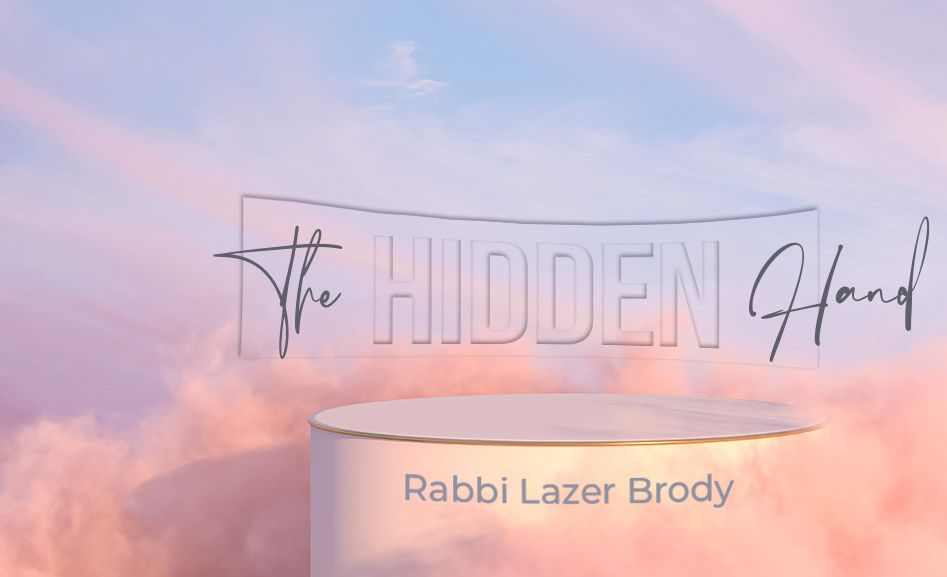
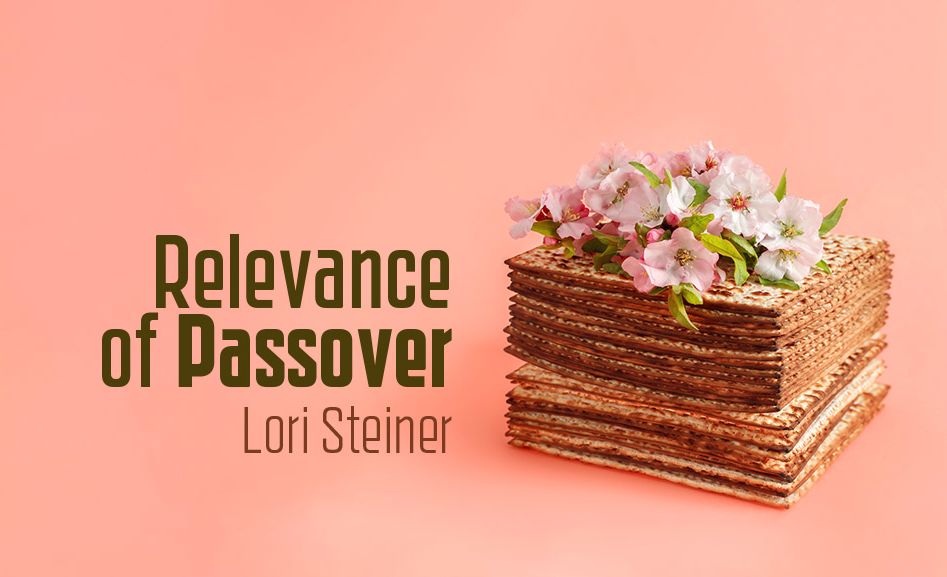
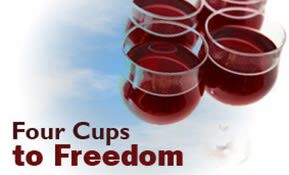
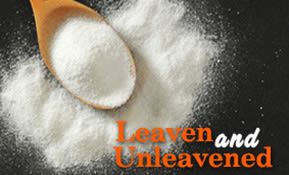
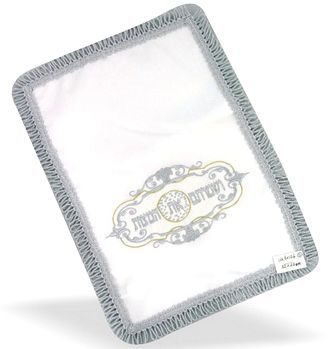
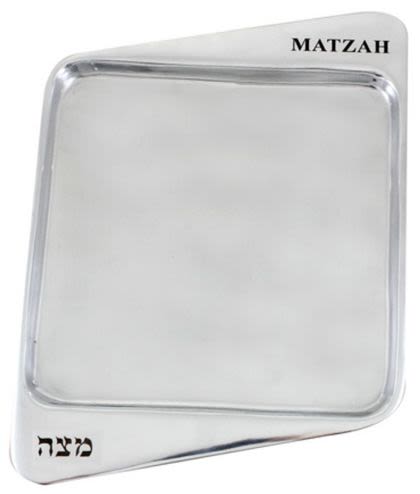
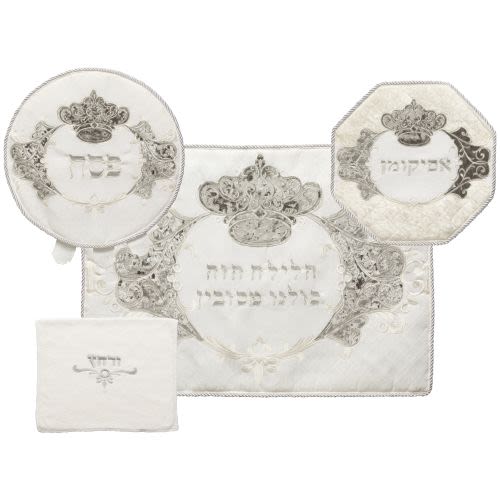
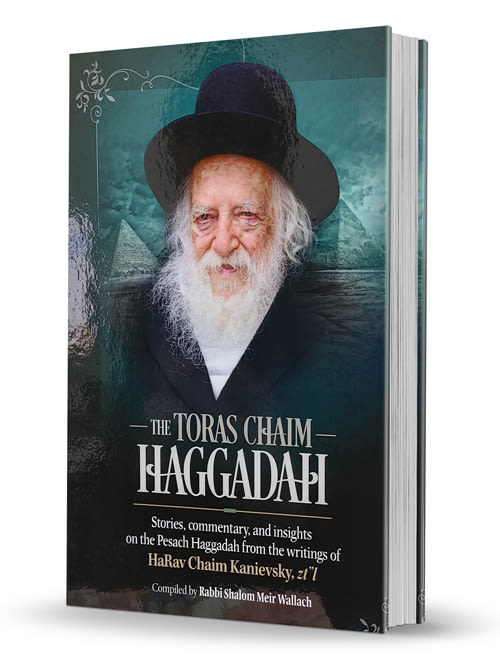
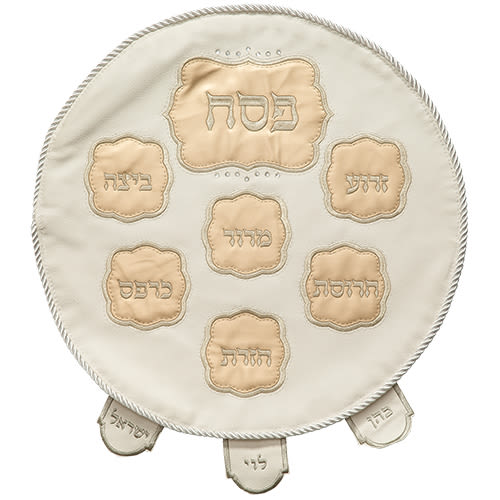
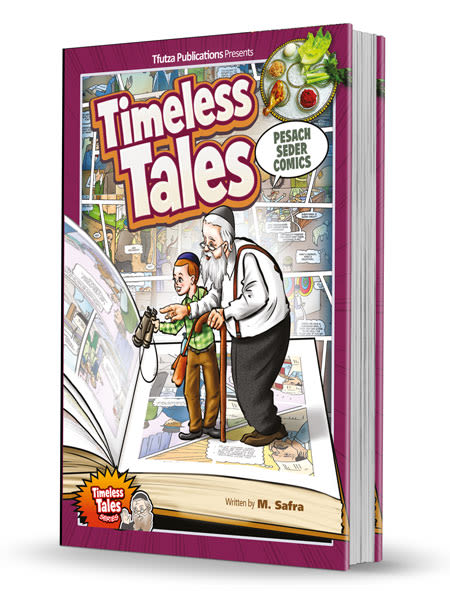
Tell us what you think!
Thank you for your comment!
It will be published after approval by the Editor.